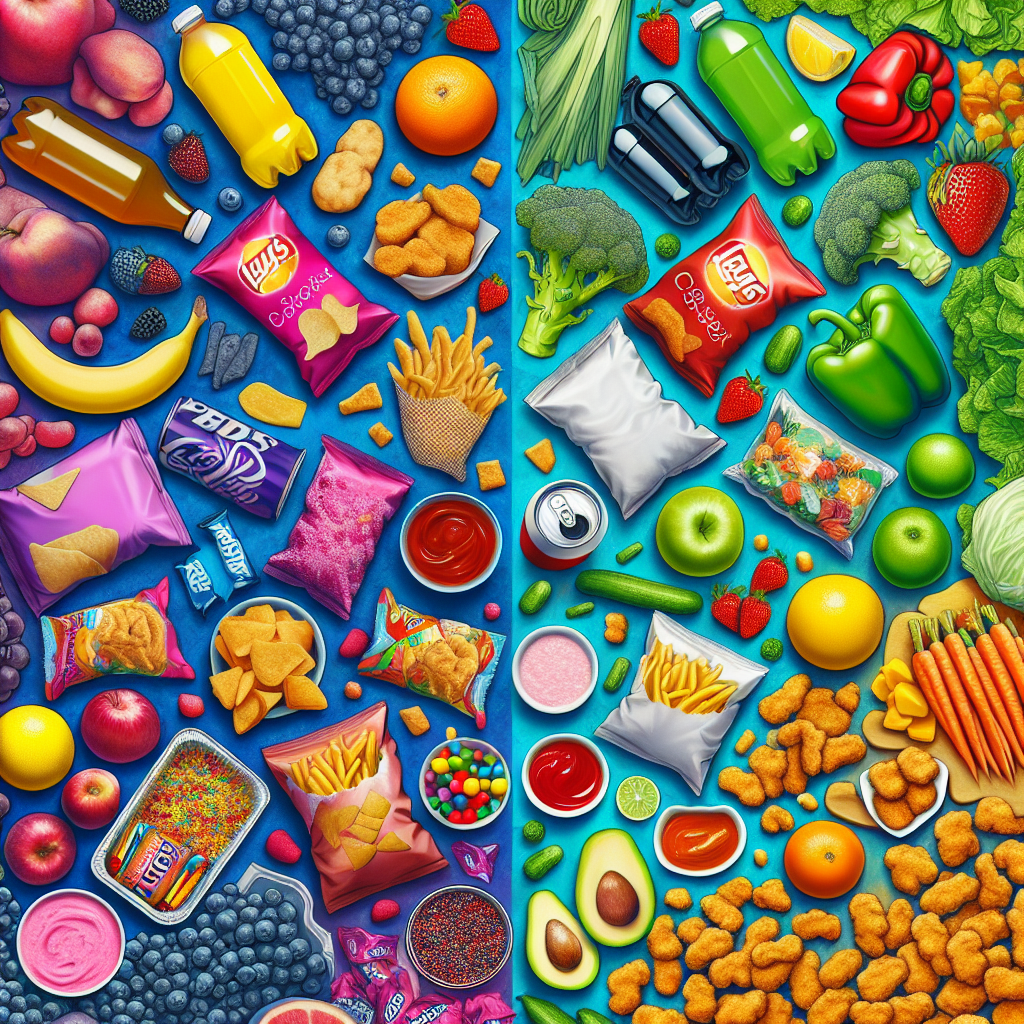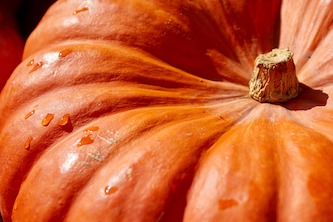Researchers from the University of California think they might have figured out why some people get headaches after drinking red wine, even if they can handle other types of alcohol. They believe a compound called quercetin, found in red grapes, might mess with how the body breaks down alcohol. Quercetin is an antioxidant that’s in high amounts in fancy red wines made from grapes that get a lot of sun. The researchers think that these more expensive wines might be worse for people who get headaches compared to cheaper wines made from grapes grown in the shade.
There have been a few ideas about what causes red-wine headaches. Some people think it’s because of sulphites, which are preservatives used in wine. But sulphites are usually higher in sweet white wines, not reds. Another possibility is histamine, which is more common in red wine. Histamine can make blood vessels bigger and maybe cause headaches. But there isn’t a lot of proof for these ideas.
Experts have found that people with East Asian heritage might have trouble with alcohol because of a gene that affects how their bodies break it down. They might get headaches, feel flushed, or get sick when they drink. The researchers think that something similar might be happening with red-wine headaches. They’ve shown in the lab that quercetin can indirectly block the enzyme that breaks down alcohol. But they still need to test this idea on people.
Quercetin is also in other fruits and veggies and is known for being anti-inflammatory. It doesn’t seem to cause headaches on its own. The researchers want to do more tests where they give people who get red-wine headaches a quercetin pill or a fake pill along with a regular drink of vodka. They hope to start these tests soon.
Even though the researchers’ findings are promising, some experts think there might be other things in wine that could cause headaches. These could include things used in making wine, like pectinases and dimethyl dicarbonate, which might make methanol. It’s important to remember that drinking too much alcohol can be really bad for your health, causing liver damage, strokes, and heart disease. It’s best to drink alcohol in moderation and know your limits and what might trigger headaches for you.
Original news source: Red-wine headache explained – and it is not about volume (BBC)
Listen
Slow
Normal
Fast
Group or Classroom Activities
Warm-up Activities:
– News Summary
Instructions: Divide the class into small groups. Each group is tasked with reading the article and summarizing it in five sentences or less. They must include the main findings of the researchers, the compound thought to cause headaches, and the future steps of the research. Afterward, groups will share their summaries with the class, and the class will discuss any differences in the details they chose to include.
– Opinion Poll
Instructions: Write a series of statements on the board related to the article, such as “Red wine headaches are a myth,” “Quercetin is the main cause of headaches from red wine,” and “It’s important to conduct further research on this topic.” Students walk around the room and sign their names under the statements they agree with. After everyone has voted, discuss the results collectively and ask students to explain their reasons for their choices.
– Vocabulary Pictionary
Instructions: Write down key vocabulary from the article (e.g., antioxidant, enzyme, histamine, inflammation, moderation). Split the class into two teams. One student from each team will come to the front and draw a word for their team to guess. The team that guesses correctly first wins a point. This activity helps reinforce new vocabulary through a fun and interactive game.
– Synonym Challenge
Instructions: List some of the complex words from the article (e.g., compound, break down, trigger, promising, inflammation) on the board. Students work in pairs to brainstorm synonyms for each word without using a dictionary. After a few minutes, review the words as a class and discuss the nuances between the suggested synonyms. This encourages students to expand their vocabulary and develop an understanding of context.
– Future Predictions
Instructions: Students work individually or in pairs to write down predictions about the future based on the article. For example, they might predict the outcome of the proposed tests with quercetin pills, or how the findings could influence wine consumption. They should use future tense structures and be encouraged to justify their predictions based on the information from the article. Share the predictions with the class and discuss the likelihood of each.
Comprehension Questions:
1. What have researchers from the University of California discovered about why some people get headaches from red wine?
2. Which compound found in red grapes do researchers believe may interfere with the body’s alcohol breakdown process?
3. What type of wines do researchers think might be more likely to cause headaches, and why?
4. What are some other substances previously thought to cause red-wine headaches, and why are these ideas not fully supported?
5. How does the gene found in people with East Asian heritage affect their reaction to alcohol?
6. What is quercetin known for besides being found in red wine, and does it usually cause headaches by itself?
7. What is the planned experiment to test the effects of quercetin on people who experience red-wine headaches?
8. Why is it important to drink alcohol in moderation, according to the article?
Go to answers ⇩
Listen and Fill in the Gaps:
Researchers from the University of California think they might have figured out why some (1)______ get headaches after drinking red wine, even if they can (2)______ other types of alcohol. They believe a compound called quercetin, found in red grapes, might mess with how the body breaks down alcohol. (3)______ is an antioxidant that’s in high amounts in fancy red wines made from grapes that get a lot of sun. The researchers think that these more expensive wines might be worse for people who get headaches compared to cheaper wines made from grapes (4)______ in the shade.
There have been a few ideas about what causes red-wine (5)______. Some people think it’s because of sulphites, which are preservatives used in wine. But sulphites are usually higher in sweet white wines, not reds. Another possibility is histamine, which is more (6)______ in red wine. Histamine can make (7)______ vessels bigger and maybe cause headaches. But there isn’t a lot of proof for these ideas.
Experts have found that people with East Asian heritage might have trouble with (8)______ because of a gene that affects how their bodies break it down. They might get headaches, feel flushed, or get sick when they (9)______. The (10)______ (11)______ that something similar might be happening with red-wine headaches. They’ve shown in the lab that quercetin can indirectly block the enzyme that breaks down alcohol. But they still need to test this idea on people.
Quercetin is also in other fruits and (12)______ and is known for being anti-inflammatory. It doesn’t seem to cause headaches on its own. The researchers want to do more tests where they give people who get red-wine headaches a quercetin pill or a fake pill along with a regular drink of vodka. They hope to start these tests soon.
Even though the researchers’ findings are promising, some experts think there might be other (13)______ in wine that could cause headaches. These could include things used in making wine, like pectinases and dimethyl dicarbonate, which might make methanol. It’s important to remember that drinking too much alcohol can be really bad for your health, causing (14)______ damage, strokes, and (15)______ disease. It’s best to drink alcohol in moderation and know your (16)______ and what might trigger headaches for you.
Go to answers ⇩
Discussion Questions:
Students can ask a partner these questions, or discuss them as a group.
1. What is an antioxidant and do you think it’s important to have them in your diet? Why or why not?
2. Have you or someone you know ever experienced a headache after drinking red wine? What do you think caused it?
3. Do you think expensive wines are always better than cheaper ones? Why or why not?
4. How would you feel if you found out that something you enjoy eating or drinking might be bad for your health?
5. What are some foods or drinks that you like which are supposed to be healthy for you?
6. Do you think it’s important for scientists to keep researching why certain foods or drinks cause headaches? Why or why not?
7. Have you ever heard of sulphites before? Do you think they are something to worry about in your food or drink?
8. What is a preservative and do you think they are good or bad in our food? Why?
9. Do you like trying new foods and drinks that come from other countries? Why or why not?
10. How do you decide if something is good for your health? Do you research, ask friends, or just try it?
11. What do you think about the idea of taking a pill to prevent headaches from drinking? Would you try it?
12. Do you think people should drink alcohol? Why or why not?
13. What are some ways you can enjoy a party or celebration without drinking alcohol?
14. How do you usually deal with headaches? Do you have any special remedies or tricks?
15. Why do you think it’s important to know your limits when it comes to eating and drinking?
Individual Activities
Vocabulary Meanings:
Match each word to its meaning.
Words:
1. headaches
2. compound
3. antioxidant
4. preservatives
5. gene
6. enzyme
7. anti-inflammatory
8. methanol
Meanings:
(a) Chemicals added to food or drinks to make them last longer
(b) Something that reduces swelling and pain in the body
(c) Pain in the head
(d) A toxic substance that can be found in alcoholic drinks
(e) A substance that helps protect the body from damage
(f) A part of your DNA that determines your traits
(g) A substance made up of different elements
(h) A protein that helps break down substances in the body
Go to answers ⇩
Multiple Choice Questions:
1. What compound found in red grapes might be responsible for causing headaches after drinking red wine?
(a) Sulphites
(b) Histamine
(c) Pectinases
(d) Quercetin
2. Which type of wine usually contains higher levels of sulphites?
(a) Red wines
(b) Sweet white wines
(c) Rosé wines
(d) Sparkling wines
3. What is one possible reason why some people with East Asian heritage might have trouble with alcohol?
(a) Excessive consumption of red wine
(b) Lack of tolerance to quercetin
(c) A gene that affects how their bodies break it down
(d) Allergic reaction to sulphites
4. What effect does histamine have on blood vessels?
(a) It makes them bigger
(b) It makes them smaller
(c) It has no effect on blood vessels
(d) It causes blood vessels to burst
5. What is quercetin known for, besides being found in red wine?
(a) Being anti-inflammatory
(b) Causing headaches
(c) Increasing alcohol tolerance
(d) Enhancing the taste of wine
6. What do the researchers plan to test on people who get red-wine headaches?
(a) Giving them a quercetin pill or a fake pill along with red wine
(b) Giving them a sulphite pill or a fake pill along with vodka
(c) Giving them a histamine pill or a fake pill along with red wine
(d) Giving them a quercetin pill or a fake pill along with vodka
7. What are some other possible substances in wine that could cause headaches?
(a) Quercetin and histamine
(b) Pectinases and dimethyl dicarbonate
(c) Sulphites and histamine
(d) Quercetin and pectinases
8. What is the best approach to drinking alcohol to avoid health problems?
(a) Drink as much as possible to build up tolerance
(b) Drink only expensive wines made from grapes grown in the shade
(c) Drink in moderation and know your limits
(d) Avoid drinking red wine altogether
Go to answers ⇩
True or False Questions:
1. People with East Asian heritage may not have difficulty with alcohol due to a gene that affects how their bodies break it down, which could also contribute to red-wine headaches.
2. Quercetin is also found in other fruits and vegetables and is known for its anti-inflammatory properties, and it does not typically cause headaches on its own.
3. Researchers from the University of California have discovered a possible reason why some people get headaches after drinking red wine.
4. The researchers suggest that these cheaper wines may be worse for people who experience headaches compared to pricier wines made from grapes grown in the shade.
5. The researchers plan to conduct further tests to investigate the effects of quercetin on people who experience red-wine headaches.
6. Previous theories about the cause of red-wine headaches include sulphites and histamine, and there is ample evidence to support these ideas.
7. Quercetin is an antioxidant that is found in lower amounts in expensive red wines made from grapes that receive a lot of sunlight.
8. They believe that a compound called quercetin, found in red grapes, might interfere with how the body breaks down alcohol.
Go to answers ⇩
Write a Summary:
Write a summary of this news article in two sentences.
Check your writing now with the best free AI for English writing!
Writing Questions:
Answer the following questions. Write as much as you can for each answer.
Check your answers with our free English writing assistant!
1. What compound found in red grapes do researchers think might cause headaches, and where is it found in higher amounts?
2. Why do some experts doubt that sulphites are the cause of red-wine headaches?
3. How does the gene that affects some people of East Asian heritage relate to the research on red-wine headaches?
4. What is the next step researchers plan to take to further investigate the cause of red-wine headaches?
5. Besides quercetin, what other substances in wine do some experts suspect might lead to headaches?
Answers
Comprehension Question Answers:
1. What have researchers from the University of California discovered about why some people get headaches from red wine?
Researchers think that a compound called quercetin in red grapes might be the reason some people get headaches after drinking red wine because it can mess with how the body breaks down alcohol.
2. Which compound found in red grapes do researchers believe may interfere with the body’s alcohol breakdown process?
The compound is quercetin.
3. What type of wines do researchers think might be more likely to cause headaches, and why?
Researchers suspect that fancy red wines made from sun-soaked grapes might be more likely to cause headaches because they have higher amounts of quercetin.
4. What are some other substances previously thought to cause red-wine headaches, and why are these ideas not fully supported?
Sulphites and histamine were previously thought to cause red-wine headaches. Sulphites are actually higher in sweet white wines, and while histamine can expand blood vessels, there isn’t much evidence to support it as the cause of headaches.
5. How does the gene found in people with East Asian heritage affect their reaction to alcohol?
People with this gene may have a harder time breaking down alcohol, leading to headaches, a flushed feeling, or becoming sick when they drink.
6. What is quercetin known for besides being found in red wine, and does it usually cause headaches by itself?
Quercetin is also known for being an anti-inflammatory and is found in other fruits and veggies, but it doesn’t seem to cause headaches on its own.
7. What is the planned experiment to test the effects of quercetin on people who experience red-wine headaches?
The planned experiment involves giving people who get red-wine headaches either a quercetin pill or a placebo, along with a regular drink of vodka, to see if quercetin is the cause of their headaches.
8. Why is it important to drink alcohol in moderation, according to the article?
Drinking too much alcohol can be really bad for your health. It can cause liver damage, strokes, and heart disease. It’s best to know your limits and what might trigger headaches for you.
Go back to questions ⇧
Listen and Fill in the Gaps Answers:
(1) people
(2) handle
(3) Quercetin
(4) grown
(5) headaches
(6) common
(7) blood
(8) alcohol
(9) drink
(10) researchers
(11) think
(12) veggies
(13) things
(14) liver
(15) heart
(16) limits
Go back to questions ⇧
Vocabulary Meanings Answers:
1. headaches
Answer: (c) Pain in the head
2. compound
Answer: (g) A substance made up of different elements
3. antioxidant
Answer: (e) A substance that helps protect the body from damage
4. preservatives
Answer: (a) Chemicals added to food or drinks to make them last longer
5. gene
Answer: (f) A part of your DNA that determines your traits
6. enzyme
Answer: (h) A protein that helps break down substances in the body
7. anti-inflammatory
Answer: (b) Something that reduces swelling and pain in the body
8. methanol
Answer: (d) A toxic substance that can be found in alcoholic drinks
Go back to questions ⇧
Multiple Choice Answers:
1. What compound found in red grapes might be responsible for causing headaches after drinking red wine?
Answer: (d) Quercetin
2. Which type of wine usually contains higher levels of sulphites?
Answer: (b) Sweet white wines
3. What is one possible reason why some people with East Asian heritage might have trouble with alcohol?
Answer: (c) A gene that affects how their bodies break it down
4. What effect does histamine have on blood vessels?
Answer: (a) It makes them bigger
5. What is quercetin known for, besides being found in red wine?
Answer: (a) Being anti-inflammatory
6. What do the researchers plan to test on people who get red-wine headaches?
Answer: (d) Giving them a quercetin pill or a fake pill along with vodka
7. What are some other possible substances in wine that could cause headaches?
Answer: (b) Pectinases and dimethyl dicarbonate
8. What is the best approach to drinking alcohol to avoid health problems?
Answer: (c) Drink in moderation and know your limits
Go back to questions ⇧
True or False Answers:
1. People with East Asian heritage may not have difficulty with alcohol due to a gene that affects how their bodies break it down, which could also contribute to red-wine headaches. (Answer: False)
2. Quercetin is also found in other fruits and vegetables and is known for its anti-inflammatory properties, and it does not typically cause headaches on its own. (Answer: True)
3. Researchers from the University of California have discovered a possible reason why some people get headaches after drinking red wine. (Answer: True)
4. The researchers suggest that these cheaper wines may be worse for people who experience headaches compared to pricier wines made from grapes grown in the shade. (Answer: False)
5. The researchers plan to conduct further tests to investigate the effects of quercetin on people who experience red-wine headaches. (Answer: True)
6. Previous theories about the cause of red-wine headaches include sulphites and histamine, and there is ample evidence to support these ideas. (Answer: False)
7. Quercetin is an antioxidant that is found in lower amounts in expensive red wines made from grapes that receive a lot of sunlight. (Answer: False)
8. They believe that a compound called quercetin, found in red grapes, might interfere with how the body breaks down alcohol. (Answer: True)
Go back to questions ⇧















